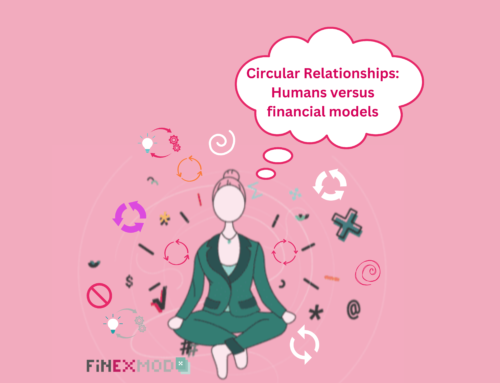I want to tell you the story of one who likes what he or she does professionally (and is also good at it), enters a work environment with a passion, but for various reasons gets disappointed. Then that person either switches to another job or stays as an employee who doesn’t give a damn about the work anymore.
Hiring the best is one thing, but keeping them in the workplace is more challenging. This might be because the best are people who typically like what they do and their main criteria for choosing a position is not the salary but the mission they adopt by joining the company.

If you are in that phase in your life when you don’t feel the fire in your belly for the job you are doing or the position you are holding within a company, then before you take any action, I recommend that you ask yourself the following questions:
Question 1: Are you sure the problem is not you?
We can always question ourselves first. Spend some time considering your behavior. To give you a concrete example, a friend of mine who is a financial modeler in a big company told me that his colleagues do not involve him in discussions and negotiations. Instead, they merely ask him to make mechanical changes to the financial model without giving him the context. He said he tolerated that in the beginning because he was new and under a lot of stress, but now that he is used to the job he wants to be involved, to know why he is making changes and to be involved in the stories behind the different sensitivities that he is asked to apply. I told him that the problem has arisen because he didn’t set things straight in the beginning, so now people have gotten used to treating him as what I would call a “financial model mechanic.“ Work relationships are like any other: the beginning phase is when you set the patterns and expectations,

If this resonates with you, then it’s good news, because you can still find a remedy by changing your own behavior.
Question 2: Do you think it will help if you talk to your supervisor about it?
First thing to consider is whether you can find a solution to make the work environment better for yourself. One solution is to talk to your supervisor or someone you think can hear your concerns but not hold them against you. For this, you need to be politically sensitive about how you express your issue within the work environment, in order not to sound just problematic. If you identify as a woman then you should even be more careful, because unfortunately women are more at risk of being labeled as being “dramatic“ as compared to men when complaining. It’s not going to be an easy conversation if you are dealing with difficult people. In some cases, you shouldn’t even bother having this conversation and go straight to the next question.
Question 3: Are you still learning in your job?
If the answer is yes then I encourage you to stay with that job, even though you may not give a damn about that company anymore. Make your incentive to learn as much as you can. Most of the time, in a difficult working environment you won’t learn from people. Because in a toxic working environment people are afraid of each other and don’t share information and experience with one another. If that’s the case, you can still learn from the documents that are shared with you. For example, I learned most of my financial modeling skills by reviewing other people’s good or bad financial models. Unfortunately I don’t get the chance to review as many models as before, because I am more engaged in building models. However, getting my financial models reviewed by other people and by auditing companies is also a great working experience. Yet if you are in a position where you are not learning in your job anymore, it’s becoming a boring routine and you also don’t feel a sense of belonging to the company, then unfortunately for the company and for the sake of your future, you should switch to another organization.
Until next time, keep the fire in your belly and know that you deserve respect, progress, and joy in your workplace.



